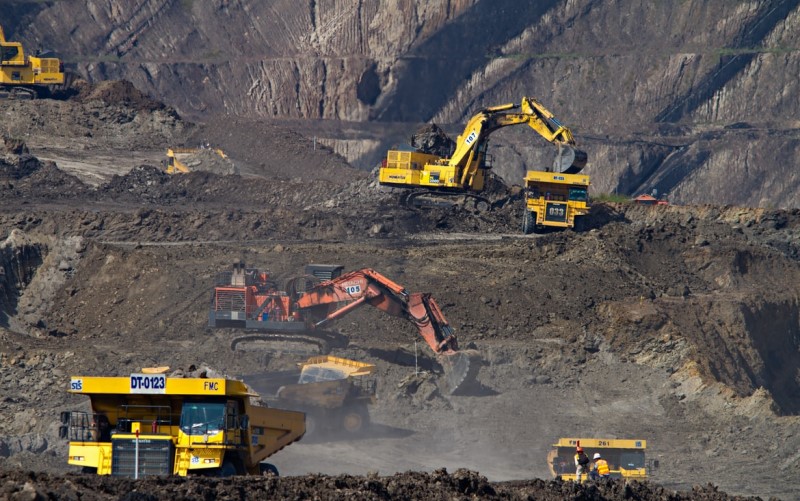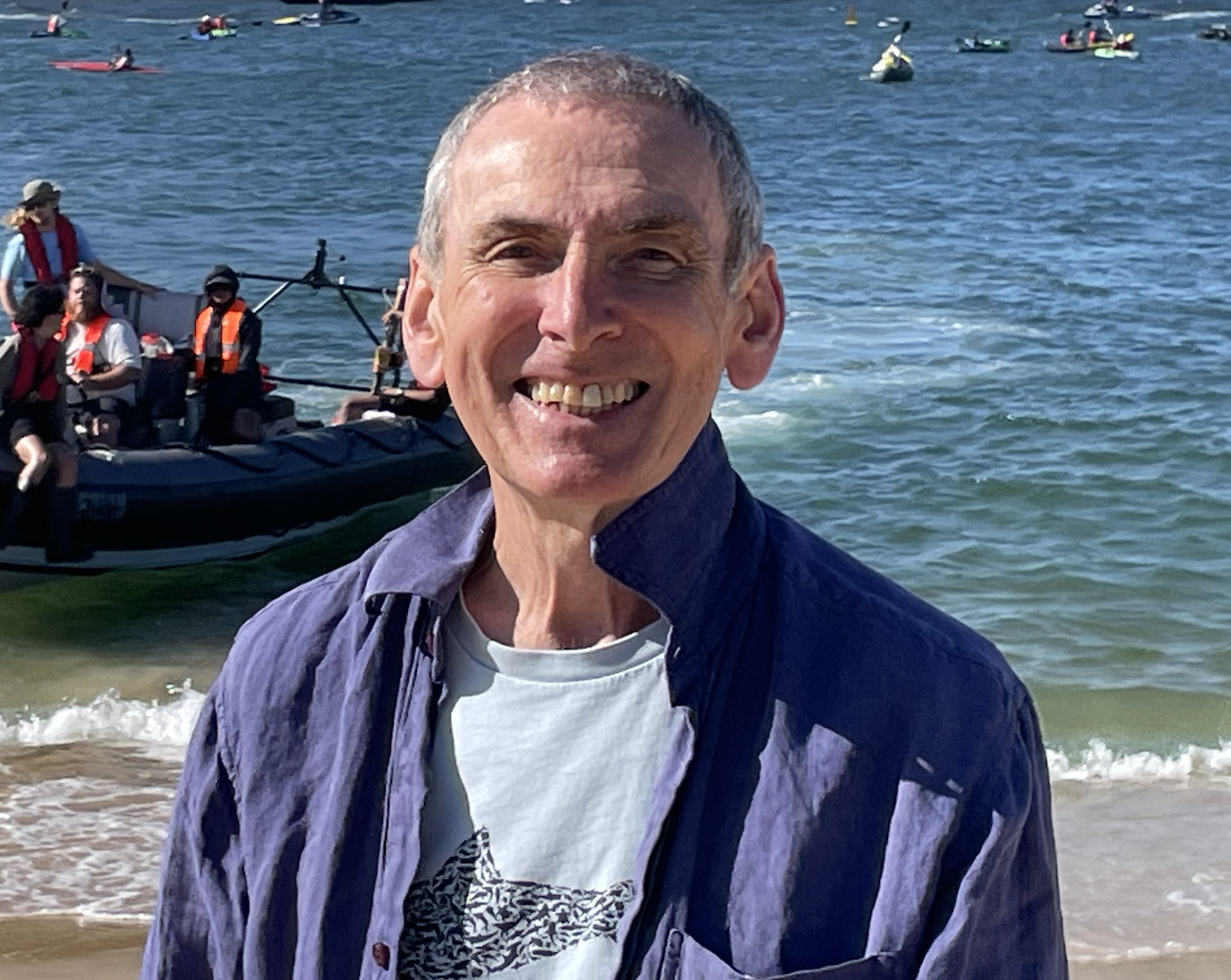Sunday environmental round up.
December 4, 2021
Coal region residents want economic transition. Plastic becoming a significant producer of CO2. Illegal logging and fishing in Myanmar and Mexico.
Coals history and future
Residents of the Hunter Valley, the coal capital of NSW, know whats happening, they can see where things are heading and they are looking to all levels of government to help them rise to the challenges and make the transition to a new economic base. Those are the conclusions from workshops and an online survey that canvassed the views of 314 community members about the regions future. The most common concerns were job security, environmental protection and climate change, and the urgent need for transition planning. The top three suggestions for action were a local authority to coordinate and fund job creation and community support, funds for flagship projects that create jobs, and expansion of TAFE and vocational education. So why arent more Hunter politicians listening to their eminently sensible constituents and focusing on the valleys future rather than their own electoral prospects? (rhetorical question!) Heres a selection of residents comments:
I was born and bred in Singleton and worked in the power station for the last 40 years. I have kids and grandkids in the Hunter area. The coal is going to stop flowing, thermal coal power is going to stop being generated so I want to set the future up for my future generations.
It is important to have this talk about transition as one about opportunity rather than what is stopping us, because people are worried about losing their jobs and their whole culture. We need to change with respect and dignity.
In terms of what is the most immediate and urgent issue, its workers being put off and not even getting their entitlements. (i.e. Lots of government money to help the fossil fuel industry open new coal, oil and gas fields but not to ensure that existing workers are treated properly.)
We need to economically and socially leverage our unique advantages proximity to existing large power infrastructure for new battery manufacturing and battery power stations, huge potential renewable energy sources, a port, potentially sustainable farming and forestry in carbon capture and organic food.
Analysis is clear that what works is when companies, the community, and the government come together to plan and that this plan is executed. (Well said.)
Sometimes, having your wishes granted is not all that youd hoped and reality prompts a change of approach. This is happening with pressure from investors and the public to persuade big miners to exit the coal business. Problems have arisen when large, at least semi-responsible, companies with a prominent public image to maintain, lots of resources at their disposal and relatively robust governance structures have exited coal by selling mines to smaller, less responsible companies with fewer resources and controls. In some circumstances, the new owners have expanded production in search of short term profit and/or not had the resources to adequately decontaminate and rehabilitate the site when the mine closed. As a result, some large miners such as BHP, encouraged by investors and climate activist groups, have become more interested in maintaining ownership of mines and managing their decline responsibly. With an eye on both their reputation and the environment, they are managing the operation down rather than simply selling out and wiping their hands of the whole business.
This recent twist in the coal story doesnt make it into this video but even so three minutes to tell the tale of the 300 million year history of coal is pretty impressive. Roughly 2 million years a second.
Cogeneration: The generation of electricity and useful heat jointly; esp. the utilization of the steam left over from electricity generation for heating.
Plastics CO2 emissions
We all know about plastic pollution and its ubiquity from the deepest oceans to the highest mountains and most remote wildernesses. Considerably less well recognised is the contribution plastics make to climate change. Greenhouse gases, principally CO2 but also methane, are produced during the whole life cycle of plastics: from fracking, transporting and processing oil and gas, the raw ingredients; through cracking ethane to produce the basic constituent molecules that make the polymers that produce the various sorts of plastic; to chemical recycling and incineration at the end of a products usefulness. The production of plastic is doubling about every twenty years. In the USA (which is responsible for about a fifth of global plastic production), the production, use and disposal of plastic generates more than twice as much greenhouse gas as all of Australias coal fired power stations. And this will increase by another 50 per cent over the next five or so years as new facilities open. The use of oil and gas to produce power has a very limited future. No surprise then that the oil and gas industry, which has a substantial stake in the plastic industry, sees plastic as their passport to continuing prosperity.
Climate crisis: The increasing risk of hazardous, irreversible changes to the climate, resulting from global warming; the environmental crisis arising from this risk.
OED embraces climate change
The October 2021 list of new words for the Oxford English Dictionary (no home is complete without a copy of at least the Shorter OED in my view) has embraced climate change and sustainability. There are ten completely new words (e.g. degrowth and natural capital), 38 new compound words (e.g. climate denial and net zero as sub-entries to climate and net respectively), and 13 new senses to existing entries (e.g. windmill: A wind turbine used to generate electricity). But the OED isnt just about what words mean, its also a history book and a monitor of social and lexicological trends - the blog and new word notes within the hyperlink provide some interesting titbits. If youre a teacher, or a home schooling parent, there are even teaching resources. The graph below shows the usage in English language publications of “climate change”, “global warming” and “greenhouse effect” from 1950 to 2018. None of the three had much currency before 1980 and for the next few years their usage increased together but from 1990 they have pursued their own trajectories. (This is an Ngram if you havent seen one before.)
Eco-anxiety: Unease or apprehension about current and future harm to the environment caused by human activity and climate change.
Nature-related financial disclosures
Im sure many readers will be aware of the 2017 report of the Taskforce on Climate-related Financial Disclosures (TCFD), chaired by Michael Bloomberg. The TCFD developed a framework to help organisations effectively assess and disclose climate-related risks and opportunities through existing reporting processes. The aim is to help organisations incorporate the identified risks and opportunities into their strategic planning and provide information to shareholders, investors, insurers and the general public to help them determine their preferred level of engagement with the organisation. Since 2017, an increasing number of organisations, particularly public companies, have been adopting the TCFDs recommendations.
In the last few years there has been increasing recognition that the risks posed to humanity by the destruction of the land, air and marine environments and by biodiversity loss are commensurate with the risks posed by climate change. It is, therefore, pleasing to see that a Taskforce on Nature-related Financial Disclosures (TNFD) was formally established in June 2021 with financial support from several governments and philanthropic organisations and the UN. Building on the work of the TCFD, the TNFD aims to develop a risks and opportunities identification, management and disclosure framework that will support organisations to shift finance and operations away from nature-negative towards nature-positive outcomes. The taskforce is expected to report in 2023. (Factoid from TNFDs two-minute video: humans have already destroyed 83 per cent of wild animals and half of all plants.)
Urban agriculture: The practice of farming within an urban environment, especially the cultivation of food crops for consumption by local communities.
Illegal logging, fishing and trading
The European Union has regulations that prohibit the import of teak from Myanmar (or watch short video). Despite this, at least 27 Italian timber traders have been importing teak from Myanmar and Italian imports of timber from Myanmar have increased in recent years. After the military coup in Myanmar in February, the EU imposed sanctions on Myanmar state-owned organisations, including the Myanmar Timber Enterprise which claims to be the only legal source of timber in the country. Despite this, some of the 27 Italian traders have continued a lucrative timber trade with Myanmar, worth about 1.5 million during March-May. The trade is funding the military juntas repression of the Myanmar people and destruction of forests. A major use of the imported teak is the construction of decking and above water furniture and fittings of luxury yachts (only natural teak will do!) in Italian shipyards, although some is illegally re-exported to other European countries.
From illegal logging and trade to illegal fishing. The vaquita is a porpoise that lives in the Gulf of California on the west coast of Mexico. Twenty years ago there were about 600 vaquita, now there are 10 or fewer. The cause of their demise is the use by Mexican fishermen and shrimp-catchers of gill nets that hang down from the surface for about six metres. The vaquita get caught in the net and drown. Gillnet fishing is illegal in the Gulf but the widespread practice is conducted openly with little effort made to implement the ban. Enforcement authorities claim to be sensitive to the needs of the coastal fishing communities and want to avoid confrontation. And in truth, its difficult not to have sympathy with the local fisherman who said, How are you going to let a town die to care for six animals?. In a parallel to the teak story, the USA has banned the import of fish from the Gulf but this is probably being circumvented by transporting the fish to other Mexican cities first. The bottom line is that just transition doesnt apply only to climate change. If governments want to save endangered species they need to do more than simply put them on a list and pass meaningless laws. They need to actively protect the environment and native species, and they need to help threatened communities deal with change. I dont hold out much hope for the vaquita though.
Vertical farming: A method of agriculture involving the use of dynamite to break up hard subsoil in order to increase the potential for crop production. (Really?!?!?)





